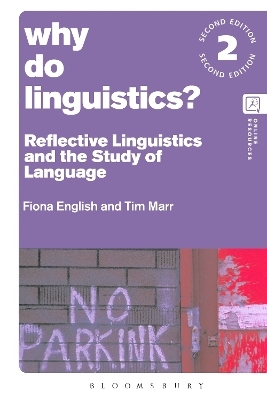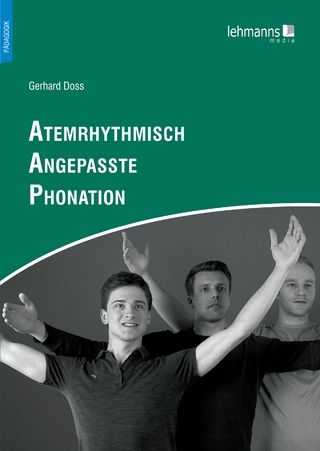
Why Do Linguistics?
Bloomsbury Academic (Verlag)
978-1-350-27216-3 (ISBN)
Providing the essential tools with which to analyse and talk about language, this book demonstrates the relevance of linguistics to our understanding of the world around us.
This second edition includes:
- Discussion of key areas of contemporary interest, such as neo-pronouns, translanguaging, and communication in the digital arena
-Two brand new chapters exploring language and identity, and language and social media
- A range of new and international examples
- New and updated references and suggested readings
- Tasks to aid learning at the end of each chapter
- A glossary of key terms.
Introducing a set of practical tools for language analysis and using numerous examples of authentic communicative activity, such as overheard conversations, social media posts, advertisements and public announcements, Why Do Linguistics? explores language and language use from a social, intercultural and multilingual perspective, showing how this kind of analysis works and what it can tell us about social interaction. Also accompanied by a new companion website featuring audio, video and other supportive resources for students and teachers, this book will help you to become an informed, active noticer of language.
Fiona English is Honorary Senior Research Associate at the Centre for Applied Linguistics, IOE, UCL's Faculty of Education and Society, University College London, UK. Tim Marr is Visiting Professor in TESOL and Applied Linguistics at Universidad Icesi, Colombia.
Preface to the second edition
Introduction
Part I: Reflective Linguistics
Introduction to Part I – Reflective Linguistics
1. About Noticing: Becoming A Linguistic Ethnographer
2. About Correctness: What is Good Language?
3. About Belonging: How does Language Enact Community?
4. About Diversity: How do Societies Organize Language?
5. About Difference: Do All Languages Work the Same Way?
Part II: The Study of Language
Introduction to Part II – The Study of Language
6. Essential Linguistic Tools
7. A Framework for Analysis
8. Speaking and Spokenness
9. Writing and Writtenness
10. Choosing Our Words
Part III: Why Do Linguistics?
Introduction to Part III – Why Do Linguistics?
11. The Subject that isn’t a Subject: How Schools Deal With Language, and Why it Matters
12. Translanguaging: When the Mixed Code is the Code
13. The Self and Others: Language and Identity
14. Encounters in The Digital Arena: Language and Social Media
15. So: Why Do Linguistics?
References
Glossary
| Erscheinungsdatum | 04.05.2023 |
|---|---|
| Zusatzinfo | 51 bw illus |
| Verlagsort | London |
| Sprache | englisch |
| Maße | 156 x 234 mm |
| Themenwelt | Geisteswissenschaften ► Sprach- / Literaturwissenschaft ► Sprachwissenschaft |
| Sozialwissenschaften ► Pädagogik ► Schulpädagogik / Grundschule | |
| ISBN-10 | 1-350-27216-7 / 1350272167 |
| ISBN-13 | 978-1-350-27216-3 / 9781350272163 |
| Zustand | Neuware |
| Haben Sie eine Frage zum Produkt? |
aus dem Bereich


